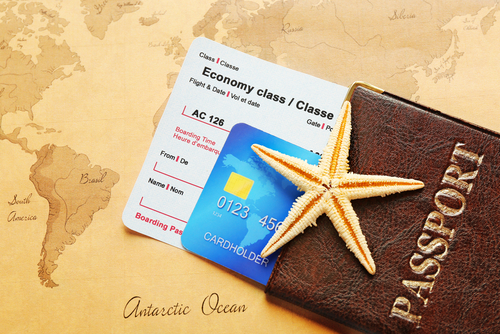In today’s digital age, credit cards have become ubiquitous in the realm of personal finance. These small plastic cards wield significant power, offering consumers the ability to make purchases, access credit, and earn rewards with ease. Understanding the nuances of credit cards is essential for individuals looking to manage their finances effectively and make informed decisions about their spending habits.
Convenience and Flexibility: The Advantages of Credit Card Usage
One of the primary benefits of credit cards is their convenience and flexibility. Unlike cash or checks, which require physical handling, credit cards allow consumers to make purchases quickly and securely, whether they’re shopping in-store or online. Features like contactless payment and digital wallets further streamline the transaction process, enhancing the overall shopping experience for cardholders.

Access to Credit: Leveraging Funds Responsibly
Credit cards provide consumers with access to funds on credit, essentially offering a temporary loan for purchases. This can be particularly useful for managing cash flow or covering unexpected expenses, providing a financial safety net when needed. However, it’s crucial for individuals to use credit responsibly, avoiding excessive debt and making timely payments to avoid high-interest charges.
Rewards and Incentives: Maximizing Value for Cardholders
Many credit cards offer rewards programs and incentives to entice cardholders to use their cards for everyday spending. These rewards can take various forms, including cashback, travel miles, or discounts on purchases. By leveraging these rewards effectively, consumers can maximize the value they derive from their credit cards and offset some of the associated costs, such as annual fees.
Managing Debt: Mitigating Risks and Financial Burdens
While credit cards offer numerous benefits, they also come with risks, particularly in terms of debt accumulation. High-interest rates and fees can quickly spiral out of control if balances are not managed responsibly. To mitigate these risks, it’s essential for cardholders to maintain a manageable balance, make timely payments, and avoid unnecessary debt whenever possible.

Building Credit: Establishing a Positive Financial History
A significant advantage of responsible credit card usage is the opportunity to build and improve one’s credit score. A positive credit history is crucial for accessing favorable loan terms, securing lower insurance premiums, and even qualifying for certain job opportunities. By using credit cards wisely and demonstrating responsible financial behavior, individuals can establish and maintain a good credit standing over time.
Security Features: Protecting Cardholders Against Fraud
Credit cards offer various security features designed to protect cardholders against fraud and unauthorized transactions. These may include EMV chip technology, which generates unique transaction codes for each purchase, making it more difficult for fraudsters to clone cards. Additionally, fraud monitoring systems and zero-liability policies provide additional layers of protection, offering cardholders peace of mind when using their cards.
Additional Perks and Benefits: Enhancing the Cardholder Experience
Beyond rewards programs and security features, many credit cards offer additional perks and benefits to enhance the cardholder experience. These may include extended warranties on purchases, purchase protection against damage or theft, and travel insurance coverage. These features add tangible value for cardholders, providing extra layers of protection and peace of mind for their financial transactions.

Technological Advancements: Embracing Innovation in Card Services
As technology continues to evolve, so too do credit card offerings. Mobile apps and digital platforms allow cardholders to manage their accounts, track spending, and make payments conveniently from their smartphones. These digital tools provide consumers with unprecedented accessibility and control over their finances, empowering them to stay organized and informed in real-time.
Consumer Protection
Credit cards offer consumer protection benefits that can safeguard cardholders against fraudulent or disputed transactions. Under the Fair Credit Billing Act (FCBA), consumers have the right to dispute unauthorized charges or billing errors, providing an added layer of security and peace of mind when using credit cards for purchases.
Emergency Assistance
In addition to providing access to funds, credit cards often come with emergency assistance services, such as roadside assistance, travel assistance, and medical emergency support. These services can be invaluable in unexpected situations, offering cardholders assistance and support when they need it most, whether at home or abroad.

Budgeting and Expense Tracking
Many credit card issuers provide tools and resources to help cardholders budget and track their expenses effectively. Features such as spending alerts, budgeting apps, and transaction categorization tools enable users to monitor their spending habits, identify trends, and make informed financial decisions to stay within their budgetary limits.
Flexible Payment Options
Credit cards offer flexibility in payment options, allowing cardholders to choose between making minimum payments, paying off balances in full, or setting up customized payment schedules. This flexibility accommodates varying financial situations and preferences, empowering consumers to manage their debt repayment strategies according to their individual needs and circumstances.
Travel Benefits and Perks
Many credit cards cater to frequent travelers by offering a range of travel benefits and perks, such as airport lounge access, complimentary travel insurance, and waived foreign transaction fees. These travel-centric features enhance the overall travel experience for cardholders, providing added value and convenience when exploring new destinations or embarking on business trips.

Financial Education Resources
Credit card issuers often provide educational resources and tools to help cardholders improve their financial literacy and make informed decisions about credit usage. These resources may include articles, tutorials, interactive calculators, and financial planning guides, empowering consumers to understand the intricacies of credit management and develop healthy financial habits for the long term.
Conclusion: Harnessing the Power of Credit Cards Responsibly
In conclusion, credit cards are powerful financial tools that offer a wide range of benefits for consumers. From convenience and flexibility to rewards and security features, credit cards provide numerous advantages for those who use them responsibly. By understanding how credit cards work and adopting smart spending habits, individuals can leverage these financial instruments to their advantage while minimizing the risks associated with debt and financial mismanagement.

